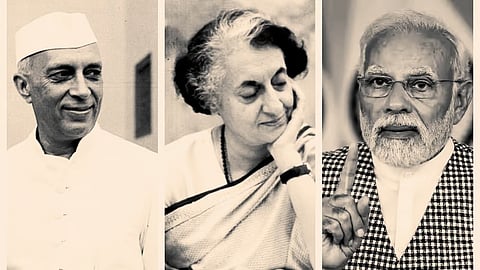
Jaipur- Rajasthan’s former Chief Minister and senior Congress leader Ashok Gehlot has expressed deep concern over the recent India-Pakistan ceasefire, particularly regarding US President Donald Trump’s claim of intervention. In a social media post, Gehlot invoked India’s historical policy of resisting international pressure, citing the annexation of Goa and Sikkim as examples, and questioned the current government’s stance.
In his post, Gehlot wrote, “India has never bowed to international pressure in the past. In 1961, Pandit Nehru liberated Goa from Portuguese rule despite Portugal being a NATO member and facing Western pressure. In 1974, Indira Gandhi ignored US warnings and integrated Sikkim into India.” He added, “Since Indira ji’s time, India’s policy has been clear: no third-party interference in India-Pakistan matters. So, what compulsion led the central government to allow US intervention?”
On May 10, Donald Trump claimed on social media that the US had mediated an immediate ceasefire between India and Pakistan. Terming it a “historic and humanitarian” step, Trump praised the leadership of both nations. However, India’s Foreign Secretary Vikram Misri clarified that the ceasefire was a bilateral decision reached through talks at the DGMO level. India outright rejected claims of US mediation, asserting that it was entirely an India-Pakistan agreement.
Mere hours after the ceasefire was announced, Pakistan violated it by initiating gunfire and drone attacks in Kashmir. Foreign Secretary Misri condemned Pakistan’s actions in a midnight press conference, and the Indian Army responded with retaliatory measures, forcing Pakistan to back down. Gehlot termed Pakistan’s actions as “treachery,” questioning their credibility.
Gehlot referenced the 1961 Operation Vijay, when India liberated Goa from Portuguese control. Despite pressure from the US and NATO countries, Pandit Nehru proceeded with the military action. Similarly, in 1974, Indira Gandhi annexed Sikkim into India, disregarding US warnings. Gehlot highlighted these events to illustrate India’s tradition of prioritizing sovereignty. He wrote:
Seeing the international pressure being exerted on India in the current circumstances, I am reminded of two incidents from my childhood when India took action, leaving all international pressures behind.
It was 1961, when I was in the sixth grade. Until 1961, the state of Goa was under Portuguese control. To merge it with India, Pandit Nehru’s government launched the military Operation Vijay. Portugal was a member of NATO, so a military operation in Portuguese territory was considered against NATO, and Western countries could have attacked India. The US ambassador also met Pandit Nehru and requested him not to undertake military action, but Pandit Nehru’s firm resolve and the valor of the army drove out the Portuguese, and Goa was integrated into India.
When I entered university, that is, by 1974, Sikkim was an independent monarchy under the Chogyal dynasty. The queen there was an American, which is why Sikkim had the support of the US. In 1974, Indira Gandhi’s government launched a campaign to merge Sikkim with India. At that time, the US put pressure on India and even warned of action, but Indira ji ignored all this and made Sikkim a part of India.
In the past, India never bowed to international pressure, which is why it is hard for us, the people of this country, to digest how the American President announced a ceasefire. This should have been entirely our government’s decision.
Since Indira ji’s time, India’s policy has been that there will be no third-party interference in India-Pakistan matters. The entire country is concerned about the US interference in the recent military operation, wondering what compulsion led the central government to allow a third country to intervene.
Gehlot’s post has sparked a nationwide debate. Many experts and leaders have questioned the perceived US intervention. Brigadier (Retired) Ashish Dutta called Trump’s claim “unacceptable” and said that the US has no basis to meddle in India-Pakistan matters.
Defense affairs expert Prafull Bakshi states that this ceasefire is not permanent but rather a state of ‘temporary peace.’ According to him, the DGMOs of both countries will meet to determine the future strategy. He also hinted that China is playing an active role behind the scenes in this entire episode. According to Bakshi, “China has now realized how Pakistan can be used, and Pakistan is acting on its instructions.”
You can also join our WhatsApp group to get premium and selected news of The Mooknayak on WhatsApp. Click here to join the WhatsApp group.